The Intel Arc B580 arrived with a far bigger splash than many could have predicted when it launched just ahead of the holiday season last year. The budget gaming GPU delivered performance that exceeded expectations and arrived at a truly compelling price. However, further testing has revealed that the card’s performance doesn’t hold up when run on some older systems.
With the new Intel GPU previously making a strong pitch for a place on the best graphics card guides of the world, this new revelation could seriously hurt Intel‘s push to consolidate its position.
The performance issues were discovered by tech testers Hardware Canucks, who posted a video to their YouTube channel discussing their test results. In it, they point out how initial testing with a modern, fast, CPU such as the AMD Ryzen 7 9800X3D results in consistently excellent performance for the price of the card. However, when testing with an older Intel Core i5 9600K CPU on a Z390 motherboard – a six year old system – the performance of the card becomes far more variable.
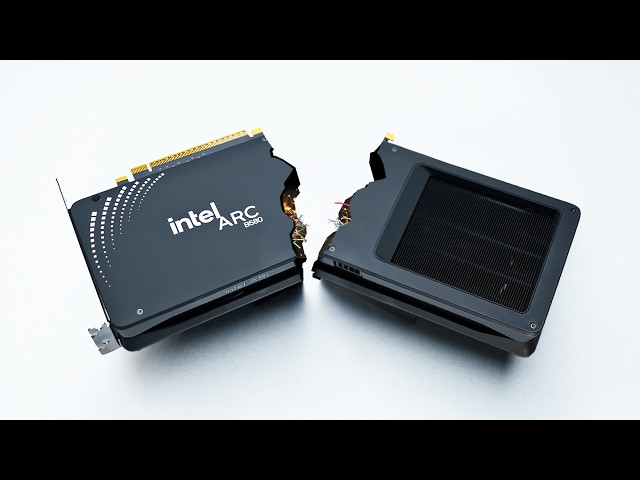
While several games showed either no meaningful performance drop or had a 10-20% performance drop in line with the other GPUs on test – the older CPU was just a consistent limiting factor – in some games, the Intel Arc B580 frame rate dropped off a cliff. For instance, in Warhammer 40K: Space Marine 2, the card dropped from a 74.3fps average to 52.5fps, while most other cards only dropped by around 10%.
An even worse example is Spider-Man Remastered where the Arc B580 dropped from an average of 154.7fps to just 74.9fps average. That means it went from a chart-topping result when pitted against the RTX 4060, RX 7600, RX 6700XT, and GTX 1660 Super to being the slowest on test. Yes, that’s slower than the six-year-old, mid-range, GTX 1660 Super.
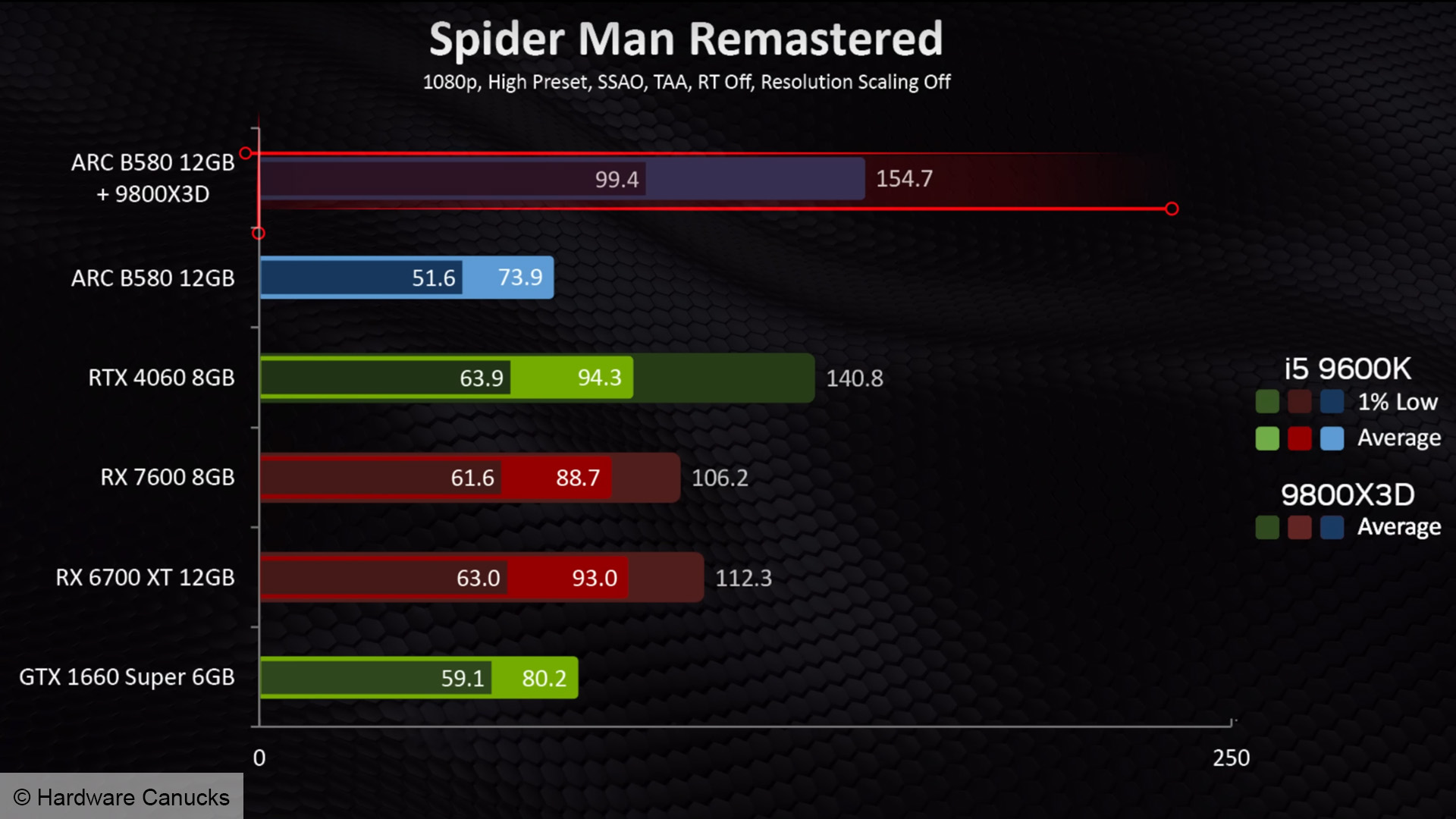
Other games affected include Starfield and Hogwarts: Legacy, though the list of unaffected titles does include plenty of modern ones such as Cyberpunk 2077, Black Myth Wukong, and Call of Duty: Black Ops 6. It’s just that the list of affected titles is significant too.
Looking at CPU utilization during their tests, Hardware Canucks conclude that the issue wasn’t the CPU being taxed more when using the Intel Arc B580 card and thus becoming a bottleneck. Instead, the CPU utilization was lower, showing that it is the card itself that’s holding back performance. This, they conclude, hints at the issue being the Intel graphics drivers.
When Intel launched its first Arc GPU, the Intel Arc A770, it had issues with performance in older games because of a lack of driver optimization and it seems these new cards have a similar issue but with older CPUs now.
Hardware Canucks reached out to Intel for comment and the company confirms that it could replicate some of the performance issues and that it is actively looking into the issue. How long a fix might take entirely depends on if the issue is a singular one that can be resolved with a few small changes, or if each game and older system is affected in a different way. We’ll have to wait on further word from Intel to find out.
In the meantime, the Intel Arc B580 remains a decent budget upgrade for those on more modern systems. However, both AMD and Intel are set to announce brand new lines of gaming GPUs next week at the CES 2025 trade show, so we could see the whole graphics card market get shaken up, depending on what they announce. The rumors point to the AMD Radeon RX 9070 XT and Nvidia RTX 5000 series, but we’ll know more in a couple of days.
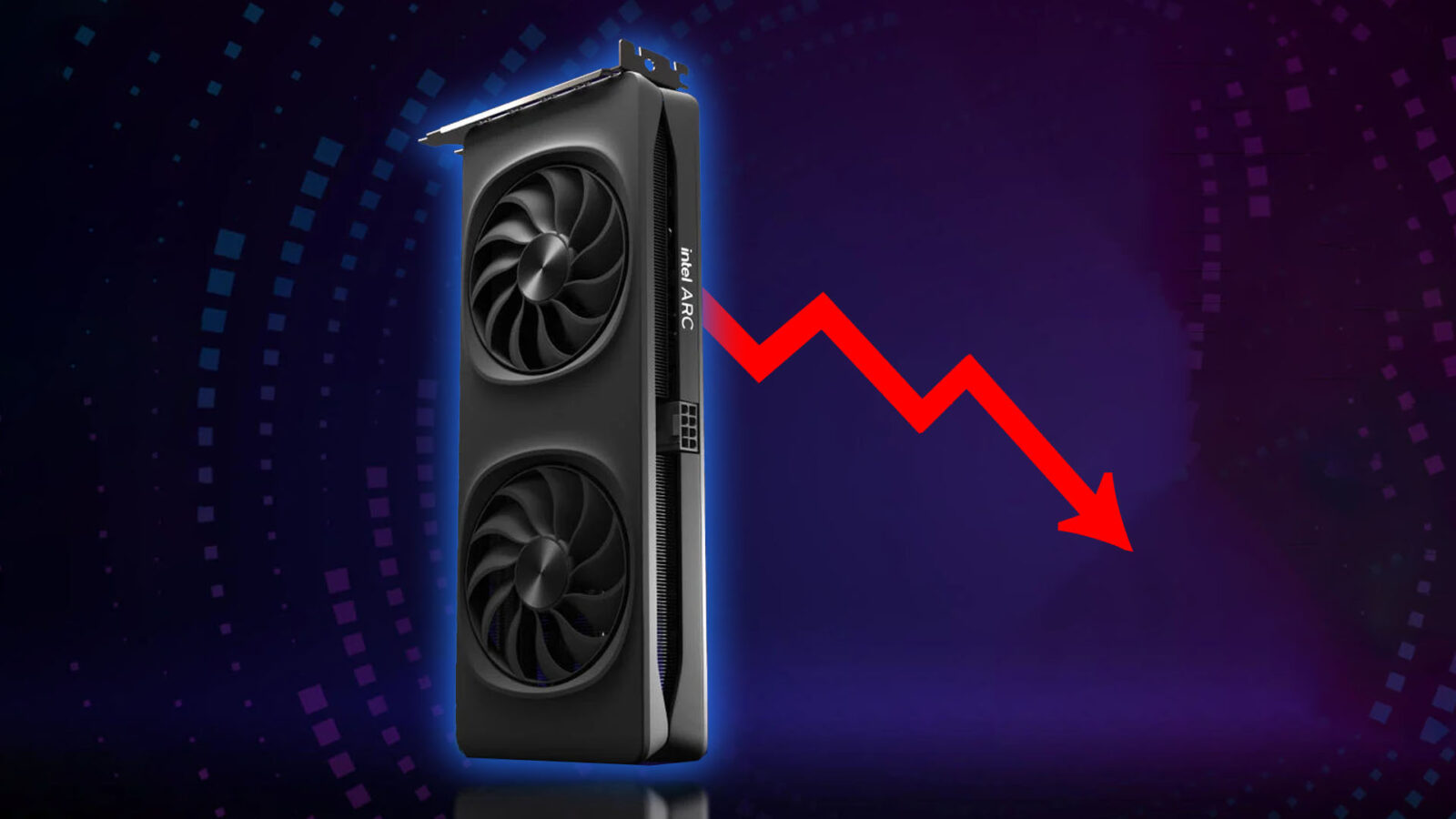
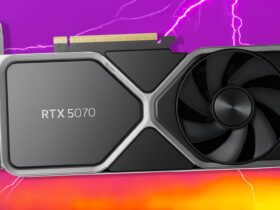



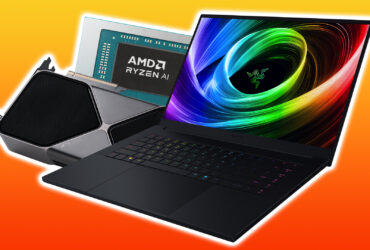
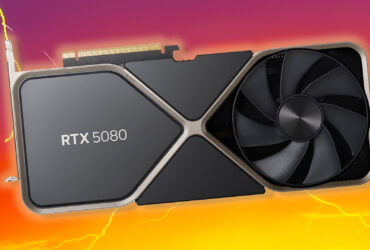
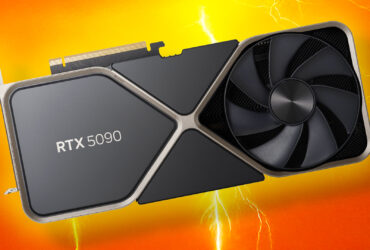
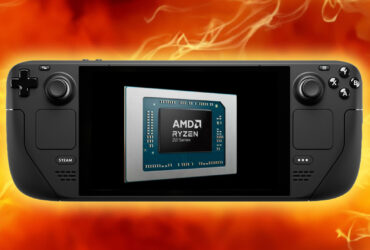
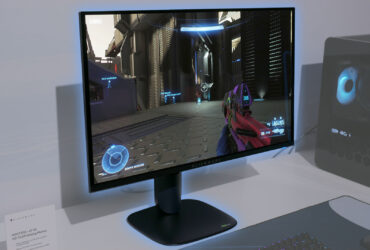

Leave a Reply